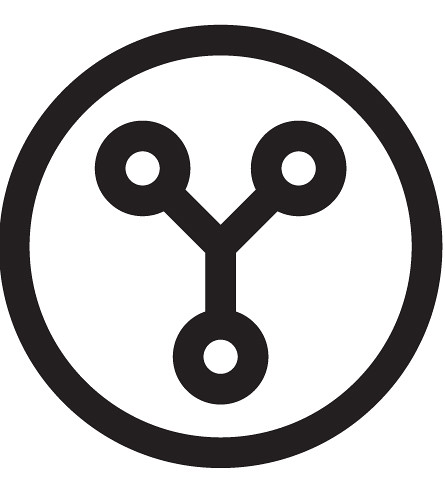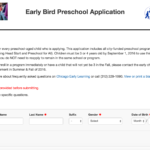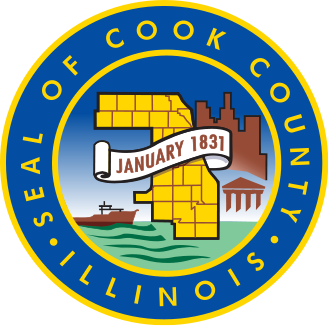Today the City of Chicago launched the City of Chicago Data Dictionary, a single, comprehensive database catalog for the City of Chicago and City of Chicago sister agencies. The data dictionary contains detailed information on every data set held by City agencies and departments, how and if it may be accessed, and in which formats it may be accessed.
The City of Chicago Data Dictionary marks an important advance in open government data because it provides vast insight into how local government works. In concert with the City’s data portal, which is one of the largest raw data stores for a municipality anywhere, residents can now download available data, as well as examine the structure of all the data the City uses to make things work around here.
Tom Schenk Jr, Director of Analytics and Performance for the City of Chicago, announced the launch at the Code for America Summit in San Francisco. The City also published the underlying code for their data dictionary (titled “metalicious”). This code allows governments, businesses, and nonprofits– any organization that maintains multiple databases– a great resource for publishing their own data dictionaries.
Toward more effective government
The project is the result a year-long effort of the Chicago Department of Innovation and Technology and Chapin Hall with funding provided through a $300,000 grant from the John D. and Catherine T. MacArthur Foundation. The project is aligned with the City’s technology plan, specifically in the initiative to improve the quality and quantity of data.
How it works
The data dictionary is set up as a simple web search interface.
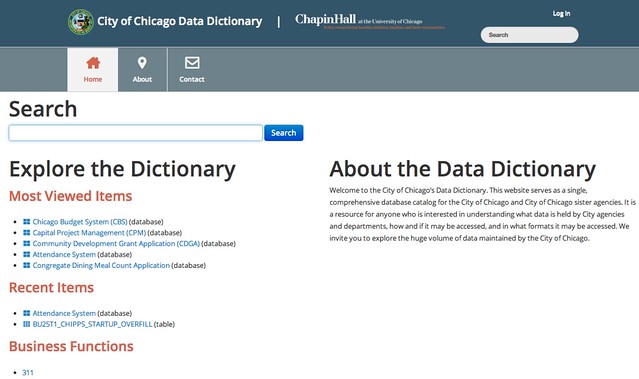
You can enter any term that you’re interested in (schools, TIF, budget, police) and it will return every item that contains that term.
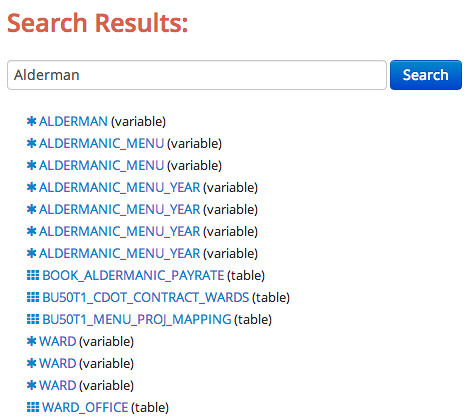
Once you pull up a particular dataset, you will see details of all the metadata for that dataset that includes every variable. This gives insight into how the data is used, who uses it, and how they use it.
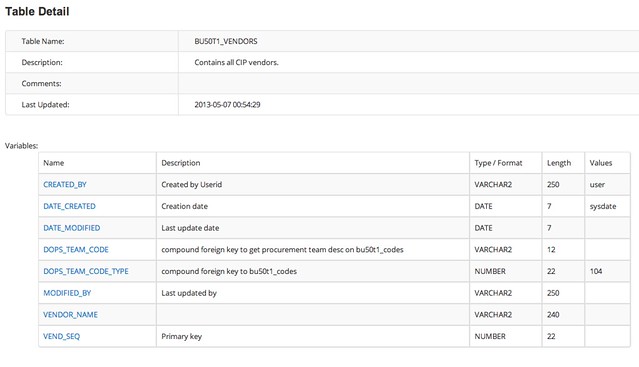
The database details feature gives valuable info like the department that runs the database, the point of contact for the database, which platform it runs on, how it loads the data, and the limitations of that data.
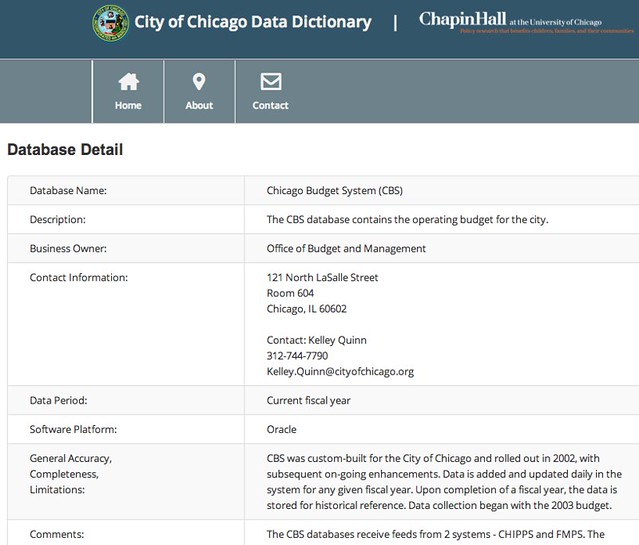
An important conceptual leap in open government data that is useful to everyone
This data dictionary is essentially a blueprint to the data that municipal decision-makers are using to guide our city. It goes beyond raw public data, letting us know what else is back there driving the work. Many people benefit from learning how to view the information on the Data Dictionary:
- Residents can see what the city is looking at when it makes decisions that affect them.
- City employees can keep better track of all the different datasets that are being produced by the City. The City’s finance system alone has over 20,000 data sets, managed by a myriad of people through time.
- Journalists and civic inquisitors can use it to determine what information is available when composing Freedom of Information Act requests. Based on my own experience, knowing what to even ask for has been a challenge. All that is over.
- Civic developers can use it to gain a better understanding of what makes public datasets tick. It also serves as a map for seeing behind the data, which can help make apps more useful.
Contact Tom Schenk via @chicagocdo with kudos, questions, and comments.
